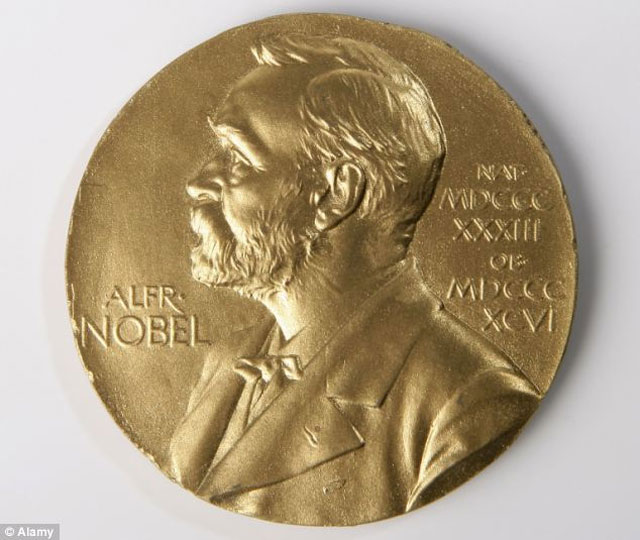
The quartet is made up of the Tunisian General Labour Union (UGTT), the Tunisian Confederation of Industry, Trade and Handicrafts (UTICA), the Tunisian Human Rights League (LTDH), and the Tunisian Order of Lawyers. Formed in the summer of 2013, it helped support the democratisation process in Tunisia when it was in danger of collapsing, said the committee.
"It established an alternative, peaceful political process at a time when the country was on the brink of civil war," said Kaci Kullman Five, head of the committee. "More than anything, the prize is intended as an encouragement to the Tunisian people, who despite major challenges have laid the groundwork for a national fraternity which the Committee hopes will serve as an example to be followed by other countries."
The Nobel Peace Prize, worth $972,000, will be presented in Oslo on Dec. 10.
Five, the newly appointed chairman of the Norwegian Nobel Committee, revealed the laureate's name at the Nobel Institute in Oslo.
The pope, the German chancellor and a Congolese doctor were all tipped as top contenders for Friday's Nobel Peace Prize, but speculation mounted that the honour could go to two octogenarian survivors of the atomic bombings of Japan 70 years ago.
The 2015 Nobel Peace Prize announcement #NobelPrize http://t.co/Lx0bhQm7QH
— The Nobel Prize (@NobelPrize) October 9, 2015
Read: Nuclear opponents, Good Samaritans tipped for Nobel peace award
But with a line up of 273 candidates, just shy of last year's record 278, predicting the winner was largely a game of chance.
This year, pundits largely agreed the prize was likely to be awarded for efforts to resolve the global refugee crisis, which has been particularly acute in Europe, or in recognition of nuclear disarmament efforts seven decades after the first-ever atomic bombings.
Hours before the winner was revealed, Nobeliana, a website run by historians who specialise in the Nobel, tapped two elderly Japanese survivors of the 1945 bombings of Hiroshima and Nagasaki as favourites alongside ICAN, a global organisation fighting to abolish nuclear weapons.
Read: Merkel has 'good chance' of winning Nobel Peace Prize: report
"Once again the world must be reminded of the fatal consequences of atomic weapons," said the website naming 83-year-old Setsuko Thurlow and 86-year-old Sumiteru Taniguchi as the frontrunners.
If it were to make such a choice, the Nobel committee would continue its recent tradition of honouring anti-nuclear efforts in years marking the decade anniversaries of the 1945 bombings.
Pundits and bookmakers alike all had German Chancellor Angela Merkel among the top three contenders for the award on account of her moral leadership as Europe struggles with its worst migration crisis since World War II.
Read: Malala Yousafzai becomes youngest-ever Nobel Prize winner
In several cases, she was touted as joint winner alongside the UN refugee agency, UNHCR which has already won the award twice in 1954 and 1981.
Last year, the Nobel Peace Prize went to 17-year-old Pakistani Malala Yousafzai and India’s Kailash Satyarthi for their work promoting children’s rights.
The Norwegian Nobel Committee awarded the prize saying that peaceful global development can only come about if children and the young are respected.










1732354127-0/Untitled-design-(3)1732354127-0-270x192.webp)






COMMENTS
Comments are moderated and generally will be posted if they are on-topic and not abusive.
For more information, please see our Comments FAQ